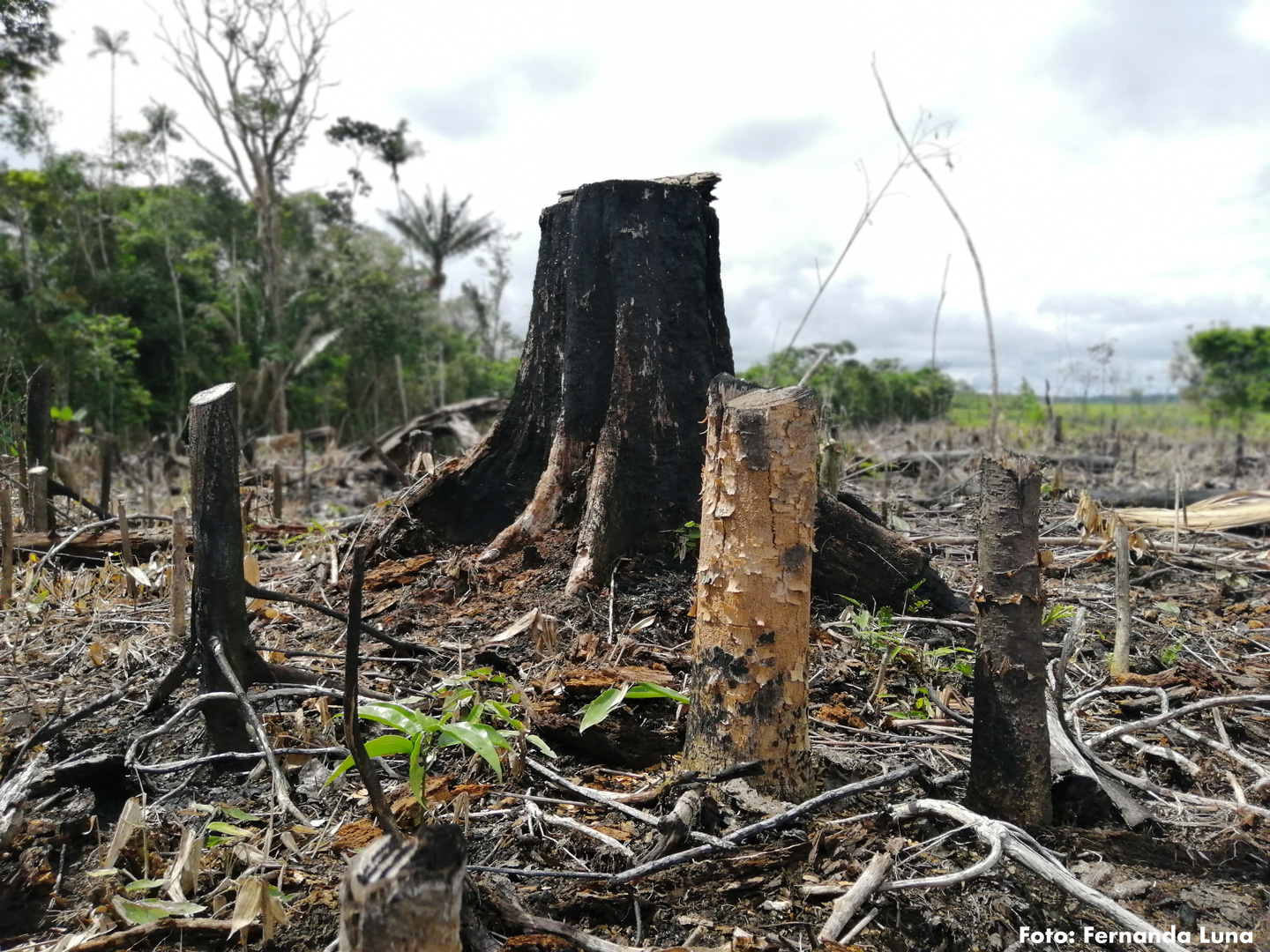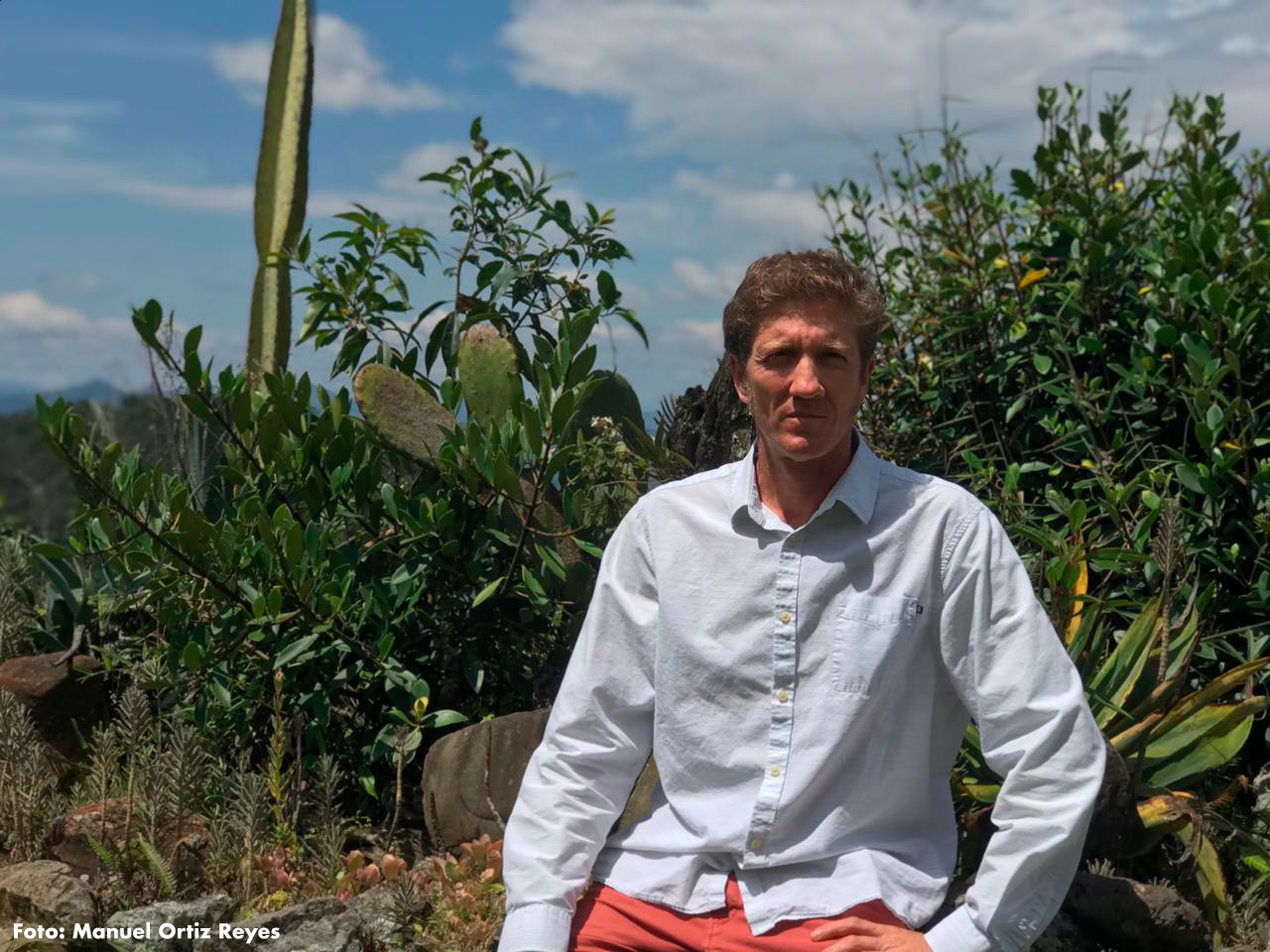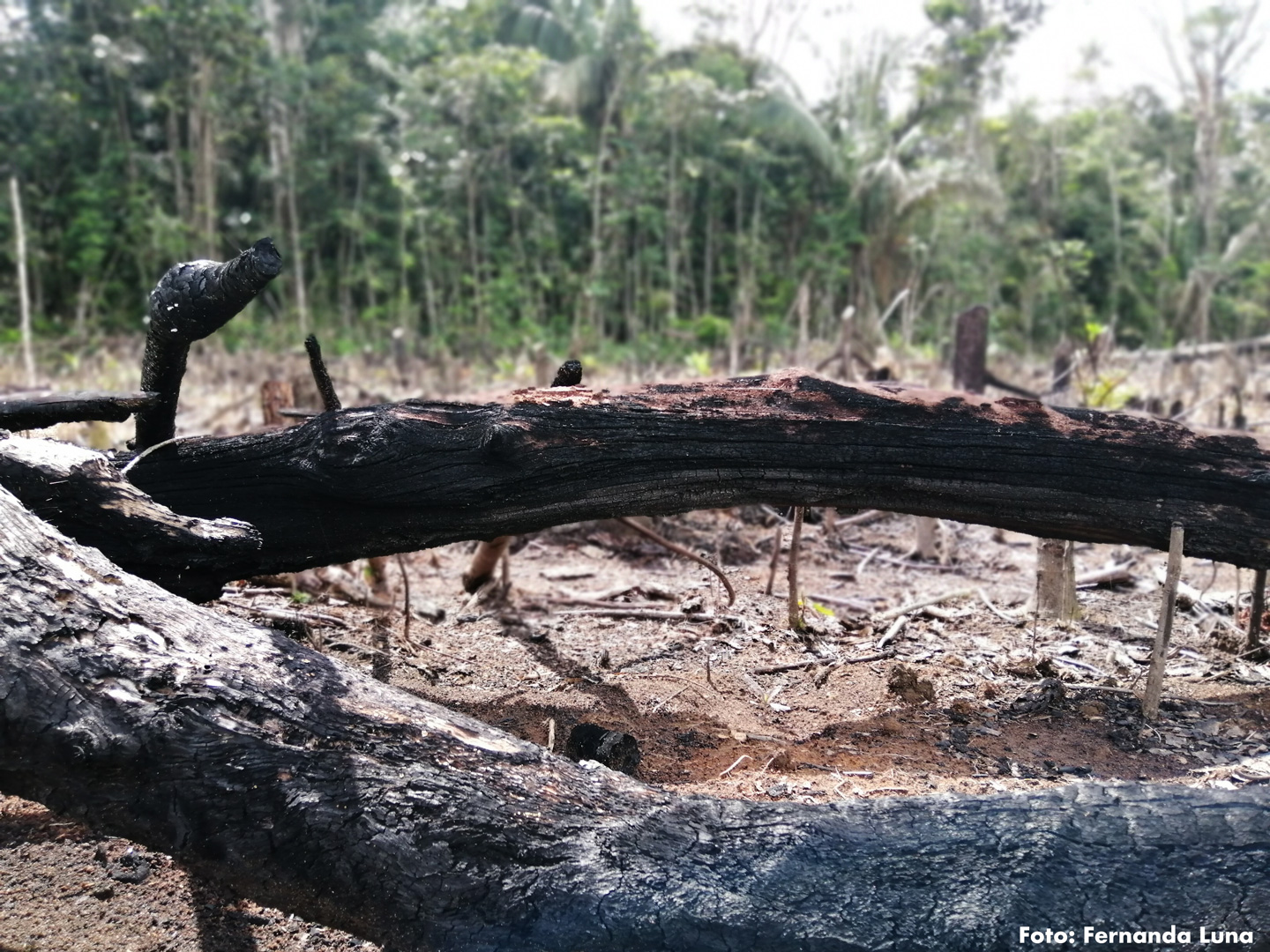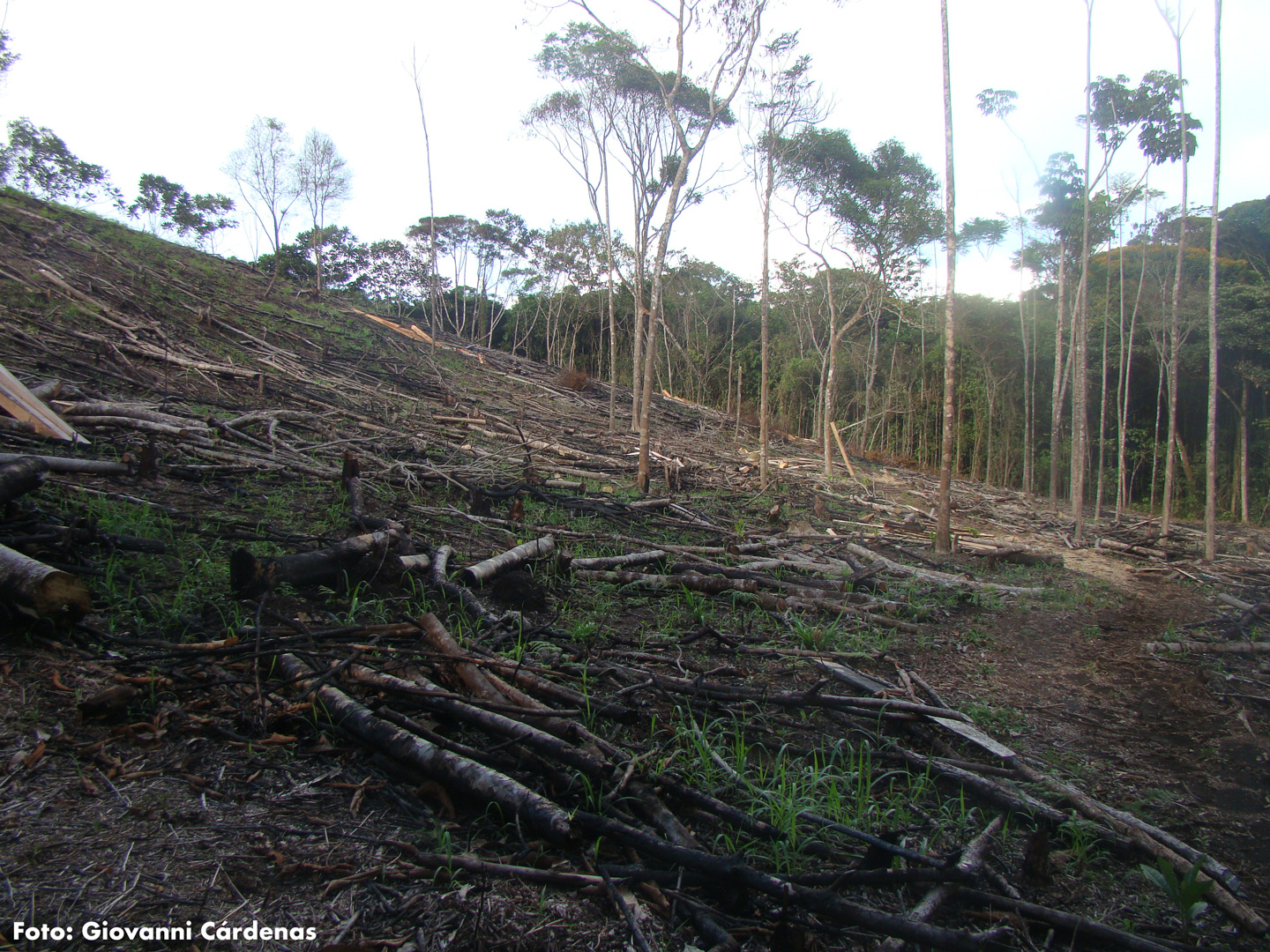The Tropical Forest Alliance (TFA) is a global pact that seeks to get stakeholders from private companies, public sectors and civil society involved into the production of agricultural goods that discourages the destruction of our forests. We talked with Javier Ortiz, TFA coordinator for Colombia, who points out that the country is already advancing with this purpose through the consolidation of agreements within the palm oil, beef, dairy and cocoa sectors. The coffee sector will join this list soon.

Deforestation may be the main environmental problem of our times. A country that devastates its forests is destroying its most important biological resources. As per the most recent data for Colombia, in the year 2017, 219.973 hectares of jungle – the space that some 400.000 football fields would occupy - were logged. The figure dropped to 197.159 hectares in 2018 and decreased again to 158.894 in 2019. In 2020, the Institute of Hydrology, Meteorology and Environmental Studies (Ideam) has already reported a new increase, especially in the Amazon region. This is a problem that builds up year after year, as damage occurs more quickly than restoration processes, which are unable to cover or repair even a minimum part of the deforested areas.
Logging is driven, among others, by illegal groups and unidentified interests that seek to accumulate lands or grow illicit crops. But, at the same time, other factors that contribute to the destruction of vegetation are timber commerce, livestock faming and the expansion of agricultural or raw material crops. Consequently, one of the challenges faced by the planet is how to increase production of food and other essential products without this implying the destruction of forest areas and natural ecosystems.
And this, essentially, is what the Tropical Forest Alliance (TFA) aims to achieve, by motivating agreements among companies or productive sectors for zero deforestation processes.
More than thirty countries endorsed TFA and Colombia is one of them. In fact, it was the first one to do so in Latin America. And, presently, it is ratified by the Embassies of the Netherlands, Norway and United Kingdom and by Fondo Acción, WWF, PricewaterhouseCoopers, Rainforest Alliance, Usaid, Solidaridad Colombia, WCS, The Nature Conservancy, Finagro, Cargill and World Bank, among other organizations.
Javier Ortiz, coordinator of TFA for our territory, says that the idea is for the common citizen and the final consumer to be able to find, in supermarkets, products with a label that indicates that their manufacture is based on sustainable processes and that they never contributed to the destruction of our flora.

Why is it important for Colombia to belong to the Alliance?
Colombia is one of the countries with the highest rate of deforestation in Latin America and even in the planet, which affects different forests that provide livelihoods for farmers, indigenous peoples and afro communities and services to society in general. An important part of that deforestation is related, for example, to land grabbing and speculation (through cattle introduction) but, in some cases, to processes that supply legal productive chains that provide themselves – knowingly or unknowingly – with materials or supplies that have involved the destruction of forests. We want to influence this last link.
Are there prioritized regions?
Meta and Caquetá are the departments we are most interested in, due to the impact of livestock farming in Caquetá and the advance of oil palm in Meta.
Are there concrete results to-date?
The first important result is the cooperation of the many organizations and governments that are involved. And having the NGOs working on our side. Being able to rely on banks with a progressive interest in financing reconversions or better practices, such as Bancolombia or Finagro. We have started to work with companies placed at the end of the chain, with market integrators such as large supermarkets or buyers. TFA is a big umbrella that embraces the interest of many sectors to evade any linkage to deforestation. Where these efforts have had the best echo is in the zero deforestation agreements that we are consolidating for the cocoa, dairy, beef and palm chains and, shortly, for the coffee chain.
What have been the first steps taken to restrain the impact of the oil palm or the products related with this sector?
The first thing we did was assessing the base line related with palm oil deforestation from 2011 to 2017. The outlook is now clear (with the help of Ideam and Cenipalma). We will now be able to work knowing where the problem is and its extent. Luckily, for this sector, it is not a big problem. We then talked with some 30 agro-industrial companies of the sector, committed with the agreement (of the 68 distributed in 4 palm oil zones in the country, known as “palm nuclei”), to find out, through a self-analysis, how the supply chain is formed, that is, to investigate the origin of the fruit they buy and transform. We also talked with wholesalers and retailers that buy crude oil or the raw materials they use.
And what comes after that analysis?
This exercise will be used as a base to establish goals and work to reduce the supply of oil from deforested zones, and thus aim at being the first deforestation-free palm chain at global level. This same analysis for livestock farming, for example, will take longer because, contrary to palm oil, there may be more than 900.000 livestock farmers in Colombia, from paramo to sea level, large and small, legal and illegal and their relation with deforestation, direct or indirect, is narrower.
You already have information on the advance of the palm. What will be the following step?
We know, from information from the Institute of Hydrology, Meteorology and Environmental Studies that, between 2011 and 2017, 4.155 hectares of forests were deforested to introduce palm (we should continuously update these figures and widen the analysis to other ecosystems). Now, once we have the companies’ self-analyses of their own supply chain that identifies which of their suppliers have deforestation problems or risks, they should work with this information towards solving the problem and stopping deforestation or, on the contrary, replacing the suppliers. This is the way to move down the chain from fruit, oil and by-products’ buyers to primary producers. We have information, however, of palm oil plantations that do not belong to Fedepalma and are intervening forests and other natural ecosystems in more recent years and in areas such as Guaviare. These problems are not easy to solve through these agreements and require Government intervention. We will do everything possible to block their product from entering formal commercialization channels.

What is the appeal of joining the Alliance for a firm that wants to have sustainable supply chains?
That it will not work alone in the search for or achievement of these purposes. Organizations that form part of TFA, such as WCS, WWF, Ecosocial, Solidaridad Network and The Nature Conservancy, can support them in the consolidation of these zero deforestation productive chains or help their suppliers to transform their practices so they are optimal.
To understand a bit better. how does a zero deforestation or sustainable consultancy for a private entity develop?
For example, Grupo Éxito in Meta is working with GANSO (Sustainable Livestock Farming), an initiative created by Climate Focus and the Tropical Agriculture International Center (CIAT), to offer services such as technical assistance to transform farms with degraded pastures and soils into productive and sustainable landscape. It contributes to modify inefficient livestock farming production into diversified and sustainable production systems. Knowing which farms are reconverting their practices, Éxito buys its meat there. Alquería is making similar attempts with milk producers. TFA is initiating pilot projects with Alkosto and other members of zero deforestation agreements, involving the financial sector for the sustainable productive reconversion of livestock farming and the development of monitoring and traceability systems for chain transparency.
Is there an objective to attain zero deforestation at a level different from companies or productive sectors?
Next year, in our third phase, we want to promote an effort of zero deforestation at a jurisdictional level, that is, for a municipality to attain this purpose. It is a long-term task, but with the purpose of working with mayor's offices, environmental authorities, community organizations, NGOs, and companies that form part of the value chain.
Within the Alliance there are multinational companies, such as Unilever. How can the Alliance guarantee that, although this firm is committed with a zero deforestation chain in Colombia, in another country it does not indirectly support chains that do not respect the forest?
We concentrate on what Unilever does in Colombia, but this company, in particular, became a member of TFA Colombia after joining TFA Global. Consequently, it is committed to monitor its suppliers, whether they are in Malaysia, Indonesia or Brazil.
How could a final consumer, a normal citizen, see the work of the Alliance reflected?
When he or she goes to a supermarket and sees a final product with a label that indicates and guarantees that its production was associated with a sustainable chain that did not include logging of forests. We hope to reach this point soon with the agreements and TFA.
How long could it take for this to happen?
I do not dare to give dates. Reaching such traceability that would indicate where X or Y product comes from, is not easy. For example, in livestock farming, knowing if the meat that I am buying comes from an animal that was raised in sustainable conditions, implies knowing all the farms and how the animal was handled during its life cycle, which in turn involves crossing information from the Instituto Colombiano Agropecuario (ICA), the Fondo Nacional del Ganado-Fedegán, Invima, and Ideam, among others, and being able to certify, in a transparent manner, what happened during the entire production and transformation process of this animal, from its birth until it reaches the plate.
